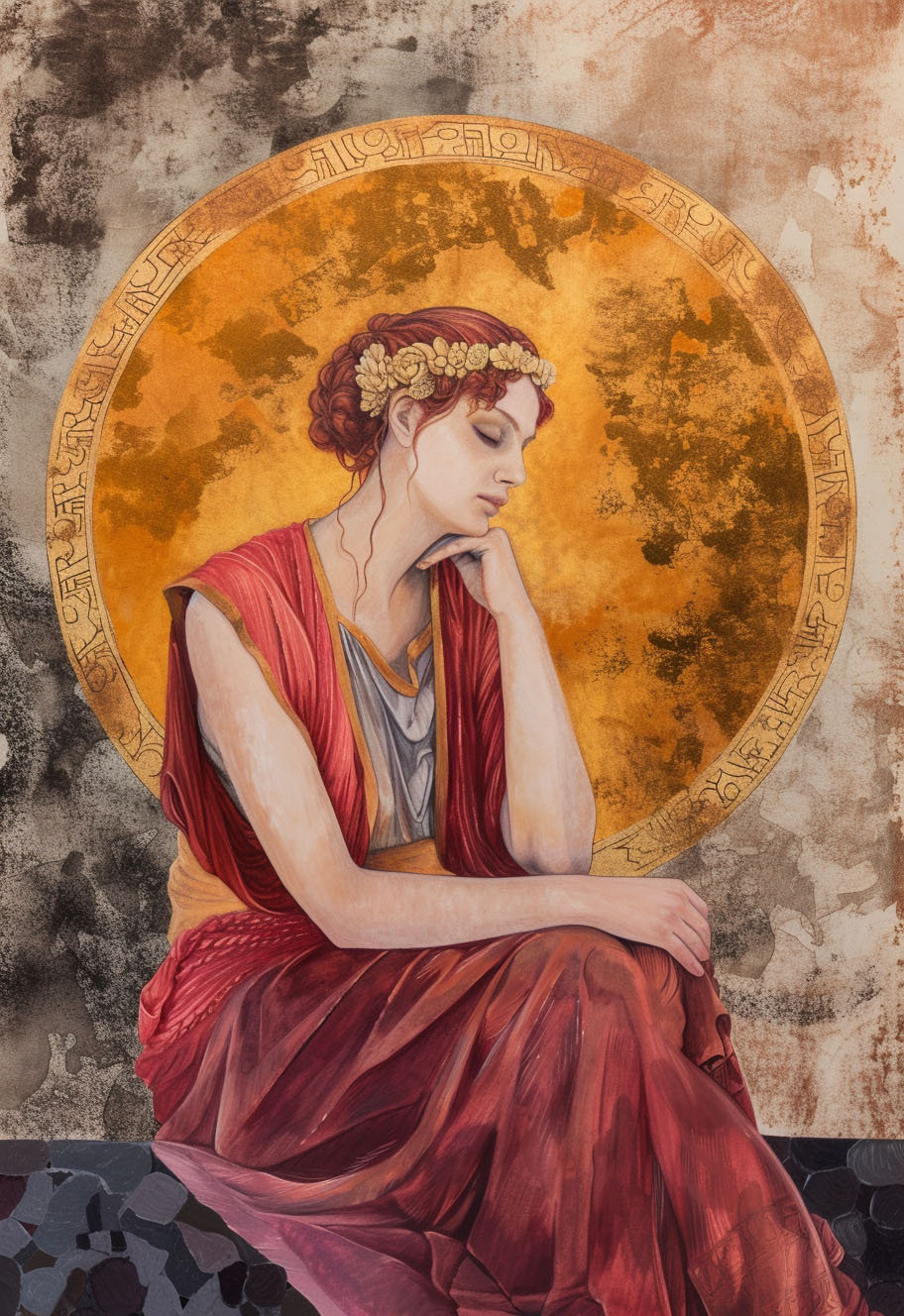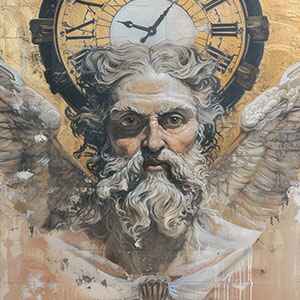Hera
In Greek mythology, Hera is one of the twelve Olympian deities and the queen of the gods. She is the sister and wife of Zeus, the king of the gods. Hera is primarily associated with marriage, family, and the protection of married women.
Parents: Cronus & Rhea
Siblings: Zeus, Poseidon, Hades, Demeter, Hestia
Consort: Zeus
Children: Ares, Hebe, Hephaestus, Eileithyia

Parentage: Hera is the daughter of Cronus and Rhea, making her one of the siblings of Zeus, Poseidon, Hades, Demeter, and Hestia.
Marriage to Zeus: Hera is the wife and sister of Zeus. Their marriage is a central element in the hierarchy of the Olympian gods. Despite Zeus's numerous infidelities, Hera remains the principal queen of the gods.
Goddess of Marriage: Hera is the goddess of marriage and the protector of married women. Her domain includes the sanctity of marriage vows and the well-being of families.
Queen of the Gods: As the wife of Zeus, Hera holds a position of great importance in the divine hierarchy. She is often depicted as the queen of the Olympian gods, presiding over Mount Olympus.
Children of Hera: Hera is the mother of Ares, the god of war, and Hebe, the goddess of youth. In some accounts, she is also considered the mother of Eileithyia, the goddess of childbirth.
Jealousy and Wrath: Hera is known for her jealousy, especially regarding Zeus's extramarital affairs. She often punishes Zeus's lovers and their offspring. Notable examples include Heracles (Hercules), the son of Zeus and Alcmena.
Mythological Conflicts: Hera is involved in several mythological conflicts, often as an antagonist to figures associated with Zeus's affairs. Her opposition to figures like Io, Leto, and Heracles is a recurring theme in Greek mythology.
Cattle of Geryon: In one myth, Hera instigates the theft of the cattle of Geryon, a task performed by Heracles as one of his labors.
Sacred Animals and Symbols: Hera is associated with the cow, peacock, and pomegranate. The peacock, with its beautiful feathers, is often depicted as a symbol of Hera's regal and majestic nature.
Cults and Worship: Hera was worshipped throughout ancient Greece, with notable cult centers in Argos and Samos. Her festivals, such as the Heraia, celebrated the goddess and her associations with marriage and family.
Literary References: Hera is prominently featured in various literary works, including the "Iliad" and the "Odyssey" attributed to Homer. Her character and conflicts with Zeus are integral to the narrative of these epic poems.
Roman Equivalent: In Roman mythology, Hera is equated with Juno, the queen of the Roman pantheon.
Hera's role in Greek mythology extends beyond her status as Zeus's wife, encompassing themes of marriage, family, and divine authority. Her presence in myths serves to highlight the complexities and conflicts within the divine realm of Olympus.
Immediate Family
Quick Facts
- She is the sister and wife of Zeus.
- Hera is the mother of Ares and Hebe.
- She is the goddess of marriage and family.
- Hera is known for her jealousy and wrath.
- Her sacred animals include the cow and peacock.
- Hera played a role in mythological conflicts.
- She is associated with the sanctity of marriage vows.
- Hera's festivals, such as the Heraia, celebrated marriage and family.
- In Roman mythology, she is equivalent to Juno.
- Hera's presence in myths highlights complexities within the divine realm.
Further Reading
Art &
Architecture
Ancient Greek art and architecture, with its harmonious proportions and timeless elegance, continue to inspire awe and admiration millennia later.
Discover
Greek Mythology & Mythical Characters
Greek mythology, a rich tapestry of gods, heroes, and mythical creatures, captivates the imagination with its tales of love, betrayal, and epic adventures that delve into the depths of the human psyche.
Discover
Ancient Greek History
Ancient Greek history, marked by remarkable achievements in democracy, philosophy, and warfare, shaped the foundation of Western civilization, leaving an indelible legacy of innovation and cultural influence that continues to resonate to this day.
Discover
Ancient Greek Olympics
The ancient Greek Olympics, held in Olympia every four years, celebrated athleticism, unity, and cultural pride, serving as a testament to the enduring spirit of competition and excellence that transcends time and borders.
Discover
Ancient Greek Wars
Ancient Greek wars, such as the Persian Wars and the Peloponnesian War, were pivotal conflicts that shaped the course of history, highlighting the struggle for power, independence, and the clash of civilizations in the ancient Mediterranean world.
Discover
Ancient Greek Culture and Society
Ancient Greek culture and society, characterized by its emphasis on art, philosophy, and civic engagement, fostered a vibrant intellectual and social landscape where innovation flourished, democracy thrived, and the pursuit of knowledge and excellence was celebrated as fundamental values of civilized life.
Discover

